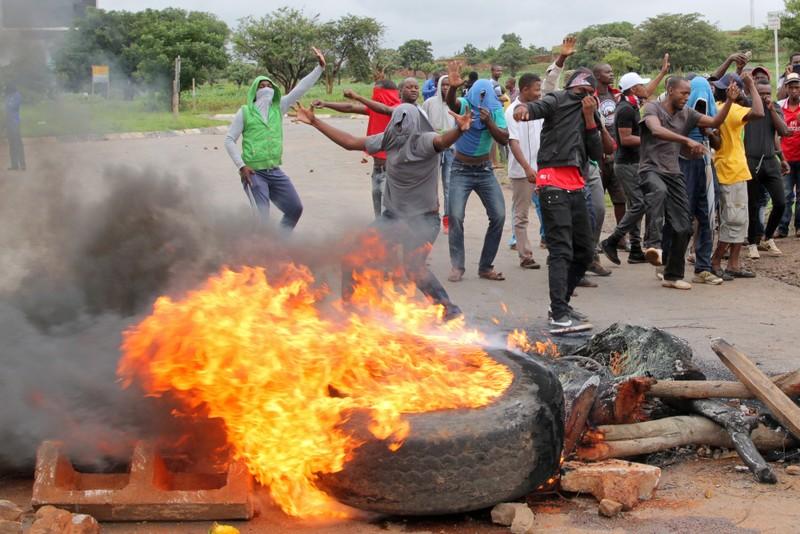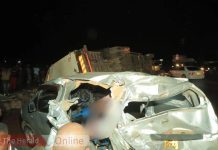
EVERY school day Tanaka Rutsito drove a minibus through a busy residential suburb on the edge of downtown Harare, navigated a meandering route to collect primary school pupils dressed in grey uniforms and floppy sun hats, and delivered them to class.
But since a strike and street demonstrations triggered by a government-ordered rise in fuel prices, and a brutal crackdown by Zimbabwe’s notorious military, Rutsito’s world has come apart.
“It was about 12 o’clock on Tuesday when I was walking back [from work] and I saw the men in the road. They were burning tyres and putting stones out to block people from going into town,” Rutsito, 42, said of the protests against the government.
He knew it spelt trouble, and quickly headed home to his wife and two children, aged ten and three. “At about 4pm, people started running past my house shouting ‘masoja, masoja!’ [soldiers, soldiers!] and we went inside and hid. It went very quiet for a while but then there was screaming from nearby houses.”

Then the soldiers started to try to break down his door. “I know you can hear people crying today but there is no funeral. Come out,” shouted one of the troops before kicking the door so hard that the family’s tiny three-room house shook.
Rutsito’s wife, Sharon, decided to open it before it was broken, expecting as a woman to be treated more leniently. “A soldier with a face-mask came inside. He had a rifle,” recalled Rutsito.
Dressed in combat kit with foliage in the net of his helmet, he slapped Mrs Rutsito twice across the face before demanding to know where her husband was. I came out, and the children followed me crying,” Rutsito told The Times in a trembling voice.
The soldiers then set about beating Rutsito with a length of stiff rubber called a sjambok, a former favourite of South Africa’s notorious apartheid police. Its thicker part bruises but the thinner tail tends to cut into the skin.
“My children were screaming. They hit me a few times, and then took us away,” Rutsito said. He and his wife, along with about 200 other locals, mostly men but also boys and teenagers, were taken to where the road had been blocked and lectured by the soldiers on disrupting traffic. The beatings started again, this time with wooden batons and bicycle chains.
The terrified group was then marched up a nearby wooded hill to a military post. They were told to stay there until 10pm or risk being killed by the soldiers watching over them. Yet the thought of his young children, including his three-year-old son, left alone at home was too much and Rutsito, his wife, and several others managed to slip away as the sun set.
“My son, Admire, was in shock. He had a high fever and was shaking uncontrollably. We were all in pain and so scared but had to stay in our house. Admire was sick for 24 hours or so. Didn’t eat for two days. Really, my family is damaged now,” he said.
Rutsito is one of thousands of victims of state-sponsored violence including shootings, reported rapes, beatings and arrests ordered while President Mnangagwa was out of the country trying to drum up foreign investment from Moscow and elsewhere.
The Zimbabwean president was forced to abandon an appearance at the World Economic Forum in Switzerland where he intended to tell the audience that Zimbabwe was open for business.
Instead, amid the chaos, he was due back home last night, a week after he appeared on state television to announce a 150 per cent increase in fuel prices, putting the price of a litre of diesel up to $3.11, making it among the most expensive in the world.





